
Blantyre: The Heartbeat of Malawi
Blantyre is a bustling city, nestled in the Shire Highlands of southern Malawi. Known as the country's commercial and industrial hub, it offers a unique blend of modernity and tradition. As Malawi's oldest city, Blantyre boasts a rich history dating back to the 19th century when Scottish missionaries established it, naming it after the birthplace of explorer David Livingstone. Today, the city is a vibrant mix of cultures and influences, making it a fascinating destination for tourists. Visitors to Blantyre can explore its historical landmarks, such as the St. Michael and All Angels Church, an architectural marvel built in the 1880s. The Mandala House, the oldest building in Malawi, now serves as a museum, art gallery, and café, providing a glimpse into the colonial history of the region. For those interested in nature, the nearby Michiru Mountain Conservation Area offers hiking trails with stunning views of the surrounding landscape and opportunities to spot local wildlife. Blantyre's bustling markets and shopping centers, such as the Blantyre Market and Chichiri Shopping Mall, provide an authentic Malawian experience. Here, tourists can purchase local crafts, fresh produce, and sample delicious Malawian cuisine. The city's vibrant nightlife, with its array of bars, restaurants, and live music venues, ensures that there is always something to do after the sun sets. Whether you're a history buff, nature lover, or simply looking to immerse yourself in local culture, Blantyre has something to offer everyone.
Local tips in Blantyre
- Visit the St. Michael and All Angels Church early in the morning to avoid crowds and get the best photos.
- If you're planning on hiking in the Michiru Mountain Conservation Area, bring plenty of water and wear comfortable hiking shoes.
- Try local Malawian dishes like nsima and chambo at local restaurants for an authentic culinary experience.
- Negotiate prices at Blantyre Market to get the best deals on souvenirs and local crafts.
- Use taxis or reliable ride-sharing services to navigate the city, as public transportation can be crowded and confusing.
Blantyre: The Heartbeat of Malawi
Blantyre is a bustling city, nestled in the Shire Highlands of southern Malawi. Known as the country's commercial and industrial hub, it offers a unique blend of modernity and tradition. As Malawi's oldest city, Blantyre boasts a rich history dating back to the 19th century when Scottish missionaries established it, naming it after the birthplace of explorer David Livingstone. Today, the city is a vibrant mix of cultures and influences, making it a fascinating destination for tourists. Visitors to Blantyre can explore its historical landmarks, such as the St. Michael and All Angels Church, an architectural marvel built in the 1880s. The Mandala House, the oldest building in Malawi, now serves as a museum, art gallery, and café, providing a glimpse into the colonial history of the region. For those interested in nature, the nearby Michiru Mountain Conservation Area offers hiking trails with stunning views of the surrounding landscape and opportunities to spot local wildlife. Blantyre's bustling markets and shopping centers, such as the Blantyre Market and Chichiri Shopping Mall, provide an authentic Malawian experience. Here, tourists can purchase local crafts, fresh produce, and sample delicious Malawian cuisine. The city's vibrant nightlife, with its array of bars, restaurants, and live music venues, ensures that there is always something to do after the sun sets. Whether you're a history buff, nature lover, or simply looking to immerse yourself in local culture, Blantyre has something to offer everyone.
When is the best time to go to Blantyre?
Iconic landmarks you can’t miss
Sunbird Mount Soche
Experience the blend of comfort and culture at Sunbird Mount Soche, your ideal hotel in Blantyre, Malawi, for relaxation and adventure.

Mijn Kitchen
Discover the cozy charm of Mijn Kitchen, Blantyre's favorite coffee shop for delightful brews and local bites in a welcoming atmosphere.
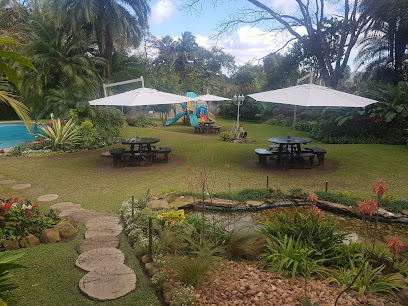
Heritage Hotel by Serendib
Discover the cultural richness of Blantyre at Heritage Hotel by Serendib, where comfort meets Malawian hospitality in an enchanting setting.
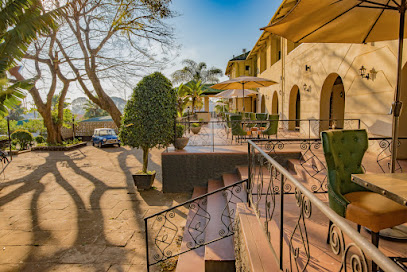
Amaryllis Hotels
Discover comfort and luxury at Amaryllis Hotels in Blantyre, Malawi, where modern amenities meet traditional hospitality for an unforgettable stay.
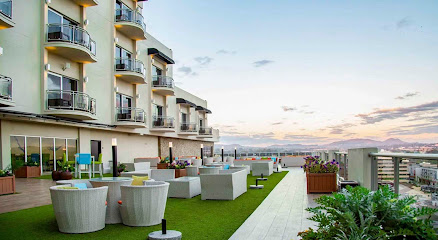
Casa Mia Lodge & Restaurant
Discover comfort and culinary delights at Casa Mia Lodge & Restaurant in Blantyre, Malawi, where tranquility meets exquisite continental dining.

Hostaria Restaurant
Savor authentic Italian cuisine in Blantyre at Hostaria Restaurant, where every meal is a delightful journey of flavors and hospitality.
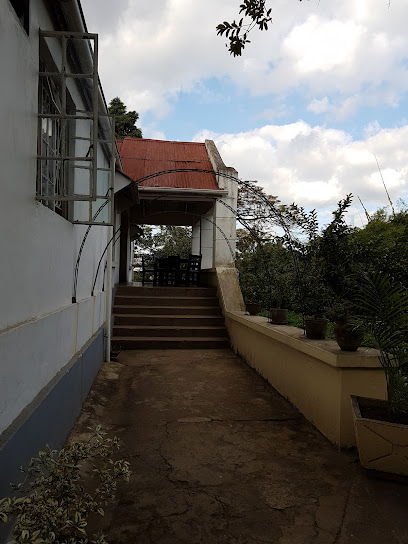
La Caverna
Explore the fusion of art and cuisine at La Caverna in Blantyre, a unique destination for cultural and culinary enthusiasts.
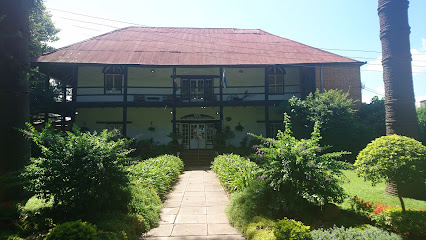
Veg-Delight Blantyre
Discover the heart of vegetarian cuisine at Veg-Delight in Blantyre, where every dish is a celebration of flavor and sustainability.
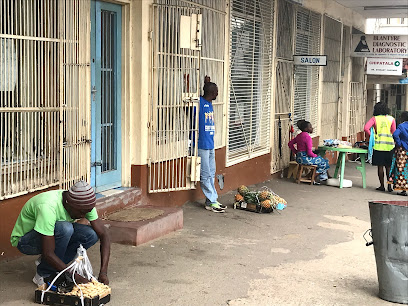
Bombay Palace Restaurant
Discover the essence of Indian cuisine at Bombay Palace Restaurant in Blantyre, where authentic flavors and a welcoming atmosphere create unforgettable dining experiences.
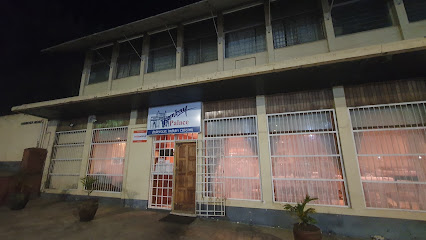
Caffe Grazia
Discover the delightful flavors of Blantyre at Caffe Grazia, your cozy café retreat for a taste of local culture and hospitality.
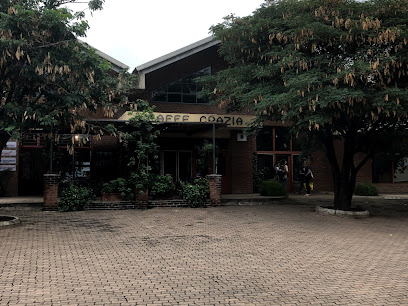
The Leslie
Discover comfort and tranquility at The Leslie, a charming hotel in Blantyre, blending modern amenities with a warm, welcoming atmosphere.

KwaHaraba Art Gallery and Cafe
Discover the artistic charm and culinary delights of KwaHaraba Art Gallery and Cafe in Blantyre, where creativity meets flavor in a vibrant atmosphere.
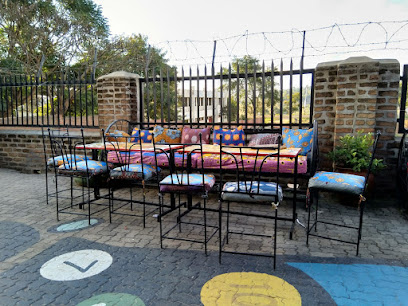
Mikos
Discover the flavors of Malawi at Mikos, a cozy restaurant in Blantyre offering a blend of local dishes, coffee, and delectable desserts.
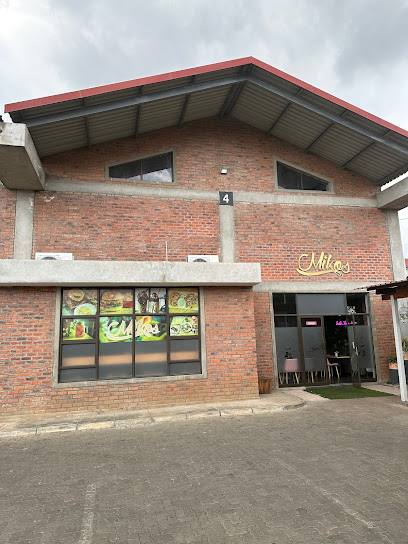
Gelato Carnival
Discover the exquisite flavors of artisanal gelato at Gelato Carnival in Blantyre, where every scoop is a celebration of sweetness and joy.
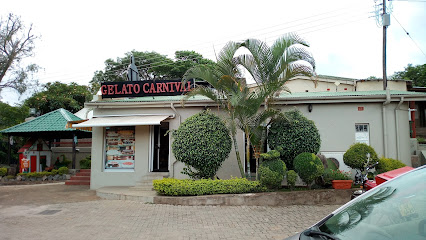
Jungle Pepper
Discover the vibrant flavors of Malawi at Jungle Pepper, an inviting restaurant in Blantyre offering delicious local and international cuisine.
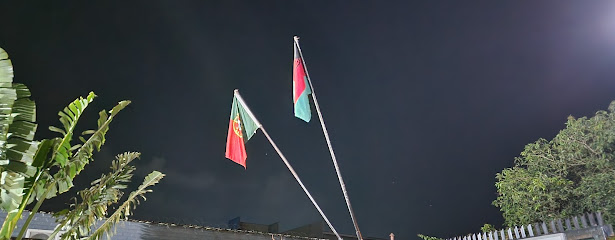
Unmissable attractions to see
Museum of Malawi
Explore the rich cultural heritage of Malawi at the Museum of Malawi, featuring art, history, and nature in a captivating setting.
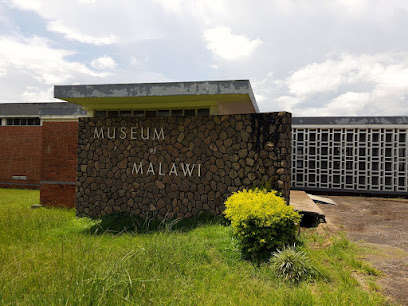
Castel Malawi Brewery
Explore the rich brewing heritage of Malawi at Castel Malawi Brewery in Blantyre, a perfect spot for beer lovers and cultural explorers alike.
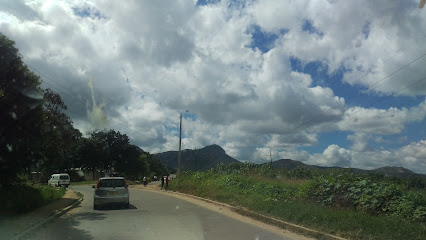
Michiru Gardens
Explore the serene beauty of Michiru Gardens, a tranquil park in Blantyre, perfect for relaxation, nature walks, and family outings.
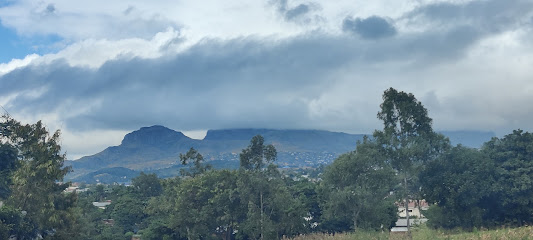
Michiru Peak
Discover the breathtaking beauty of Michiru Peak, a nature preserve in Blantyre, Malawi, perfect for hiking and wildlife exploration.
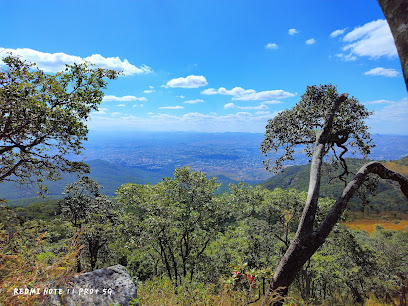
Independence Arch
Explore Independence Arch in Blantyre - a cultural gem celebrating Malawi's independence with stunning architecture and rich history.
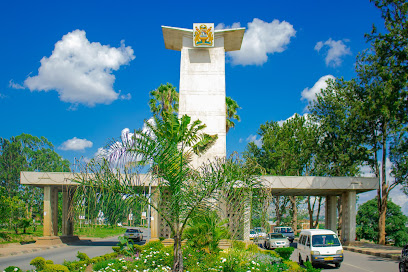
Michiru Nature Sanctuary
Explore the breathtaking landscapes and diverse wildlife at Michiru Nature Sanctuary, a serene park in Blantyre that promises a memorable escape into nature.
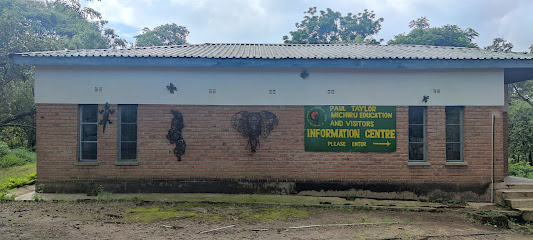
Njamba Freedom Park
Discover the serene Njamba Freedom Park in Blantyre, an urban oasis perfect for relaxation, picnics, and experiencing local culture.
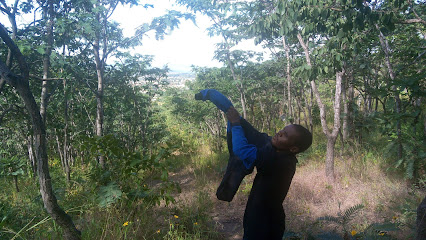
Miracle Gardens
Explore the beauty of nature at Miracle Gardens in Blantyre, where vibrant flora and serene landscapes await every visitor.
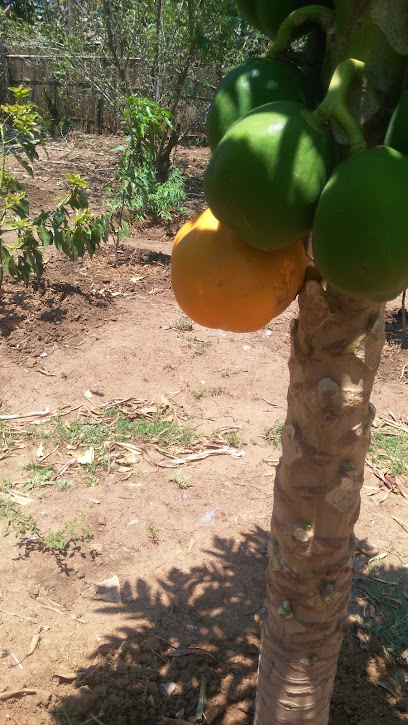
Green Valley Gardens
Experience the enchanting beauty of Green Valley Gardens in Blantyre, a perfect blend of nature and event space for unforgettable moments.
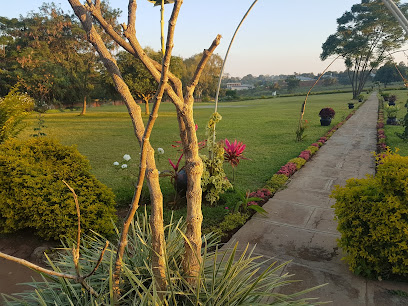
Soche mountain peak
Explore the breathtaking beauty of Soche Mountain Peak, a must-visit tourist attraction offering stunning views and unforgettable hiking experiences in Malawi.
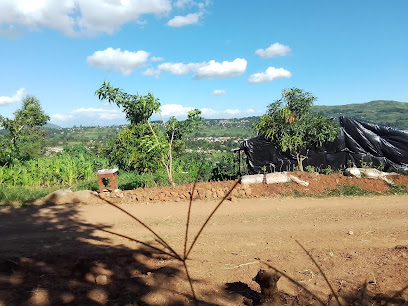
Yaisk Garden
Discover tranquility at Yaisk Garden in Blantyre, a lush oasis perfect for relaxation, picnics, and enjoying nature's beauty.
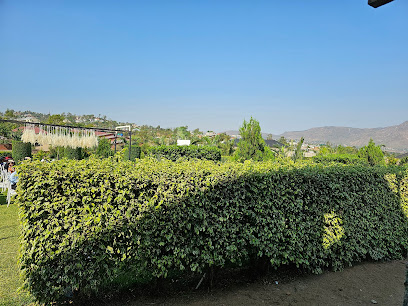
Stella Marris
Experience the tranquility of Stella Marris Park, a natural oasis in Blantyre, perfect for relaxation and outdoor activities amidst stunning landscapes.

City boundary
Explore the breathtaking beauty and rich culture of Mpemba, Malawi, a tranquil haven perfect for adventure and relaxation.
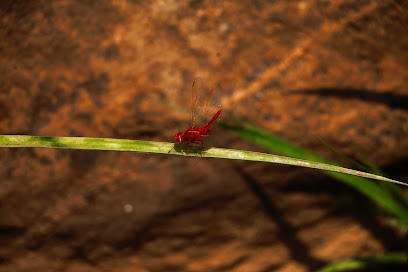
Mtendere Garden
Experience the serene beauty of Mtendere Garden in Blantyre, Malawi, a perfect retreat for nature lovers and tranquility seekers.

Nyambadwe mountain
Discover the stunning vistas and serene hiking trails of Nyambadwe Mountain in Blantyre, a must-visit destination for nature lovers and adventurers.
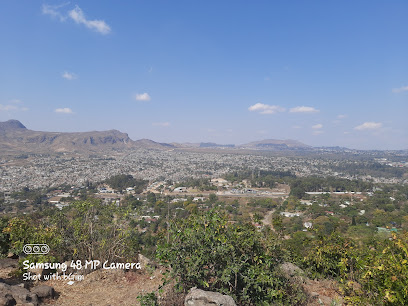
Essential places to dine
Casa Mia Lodge & Restaurant
Discover tranquility at Casa Mia Lodge & Restaurant, where comfort meets exquisite continental dining in Blantyre's serene Kabula district.
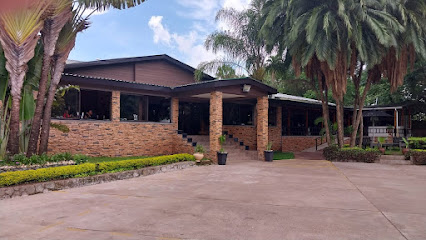
21 Grill Restaurant
Discover the exquisite flavors at 21 Grill Restaurant in Blantyre - where local cuisine meets international flair.
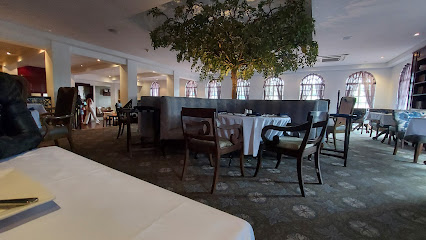
Hostaria Restaurant
Experience authentic Italian cuisine at Hostaria Restaurant in Blantyre – where every dish tells a story.
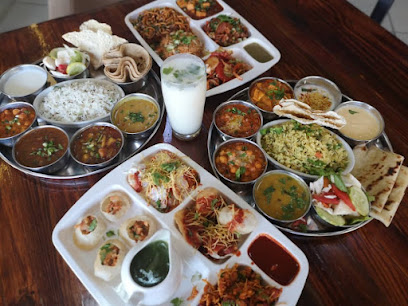
La Caverna
Experience exquisite Italian cuisine and captivating local art at La Caverna in Blantyre – where every meal is a masterpiece.
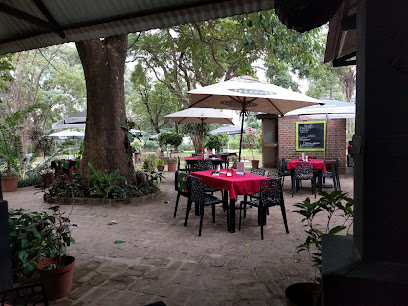
Veg-Delight Blantyre
Discover flavorful vegetarian delights at Veg-Delight Blantyre – where healthy meets delicious in a vibrant setting.
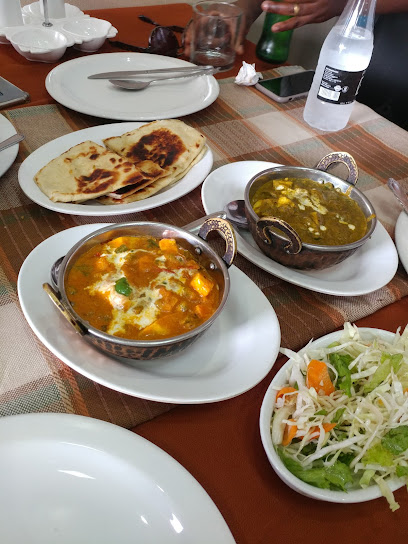
Bombay Palace Restaurant
Experience the rich flavors of India at Bombay Palace Restaurant in Blantyre - where every meal is a delightful culinary journey.
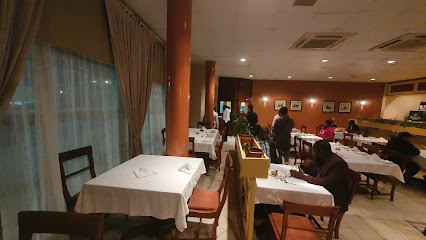
Gelato Carnival
Discover delightful artisan gelato at Gelato Carnival in Blantyre – where every scoop is an adventure for your taste buds!
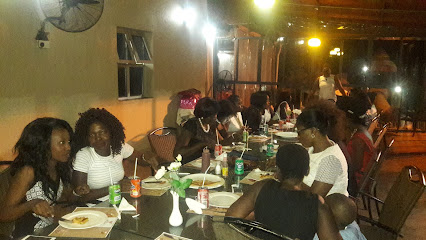
Jungle Pepper
Discover the rich flavors of Malawi at Jungle Pepper in Blantyre - where local ingredients meet international cuisine.
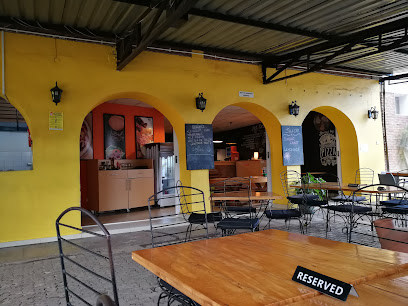
Elly B's African Diner
Discover authentic Malawian cuisine at Elly B's African Diner in Blantyre - where flavors meet tradition in a vibrant dining experience.
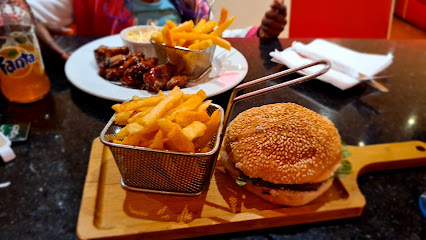
Zaky's cuisine Italian ristorante & pizzeria
Experience authentic Italian flavors at Zaky's Cuisine Italian Ristorante & Pizzeria in Blantyre - where delicious pizza meets warm hospitality.
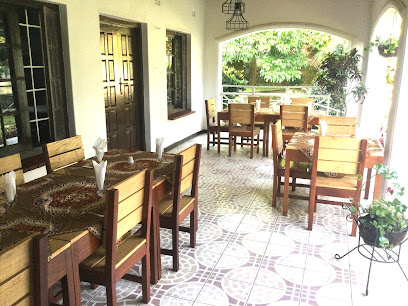
Ethiopian & Eritrean Restaurant
Discover the rich flavors of Ethiopia and Eritrea at this family-friendly restaurant in Blantyre, where tradition meets taste.
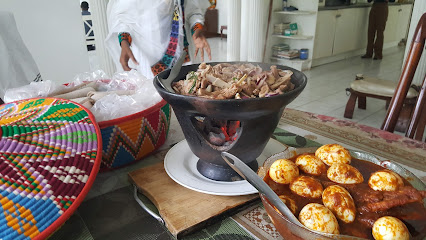
Hong Kong Restaurant
Experience authentic Chinese flavors at Hong Kong Restaurant in Blantyre – a culinary gem offering delightful dishes and warm hospitality.
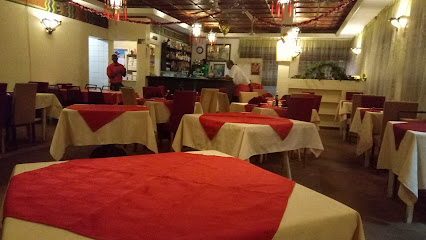
Maybe Mars Cafe
Experience delightful Malawian cuisine at Maybe Mars Cafe in Blantyre - where every meal tells a story.
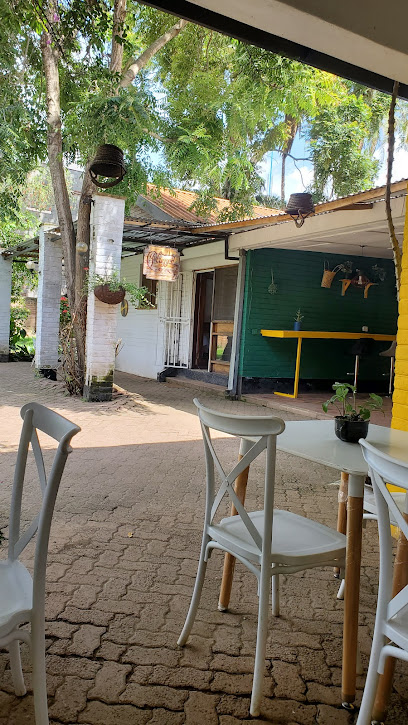
Max & Sherry Dine and Lounge
Experience fine dining at Max & Sherry Dine and Lounge in Blantyre—where local flavors meet international elegance.
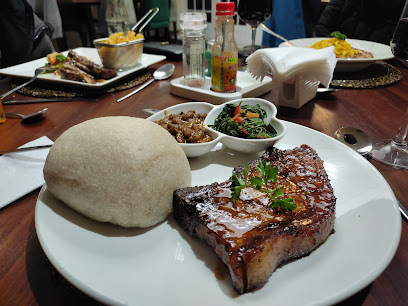
Pamudzi Eatery and Bar
Discover authentic African cuisine at Pamudzi Eatery and Bar in Blantyre – where rich flavors meet local hospitality.
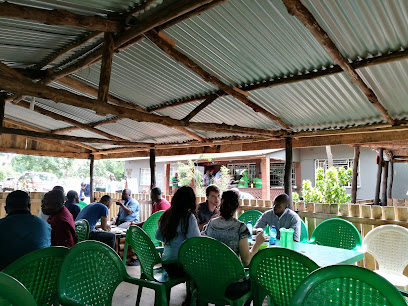
Markets, malls and hidden boutiques
Chipiku Plus Blantyre
Explore the local flavors and products at Chipiku Plus in Blantyre, your gateway to authentic Malawian grocery shopping.
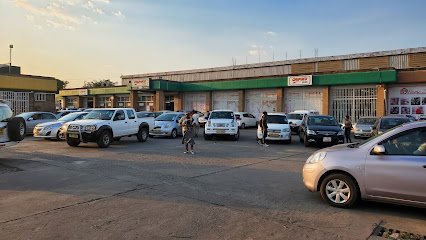
Marceline Gifts
Explore Marceline Gifts for unique souvenirs and authentic Malawian crafts in Blantyre, perfect for capturing the essence of your travels.

Clocktower Mall
Explore Clocktower Mall in Blantyre, Malawi - a vibrant shopping destination filled with local culture, unique shops, and delightful dining options.
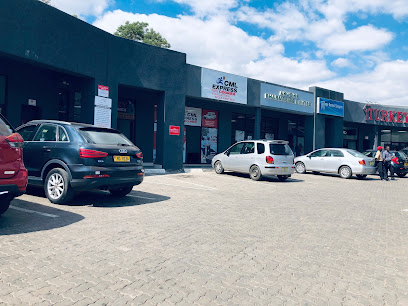
Ashley Furniture Homestore
Discover stylish and quality furniture at Ashley Furniture Homestore in Blantyre’s Clocktower Mall, your destination for home decor and design.
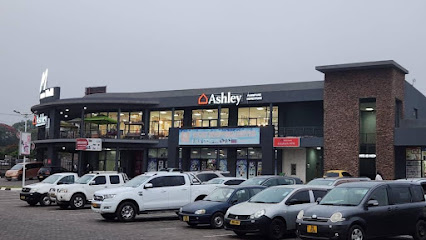
People of the Sun
Explore vibrant crafts and unique handmade treasures at People of the Sun in Blantyre, Malawi, showcasing the rich cultural artistry of the region.
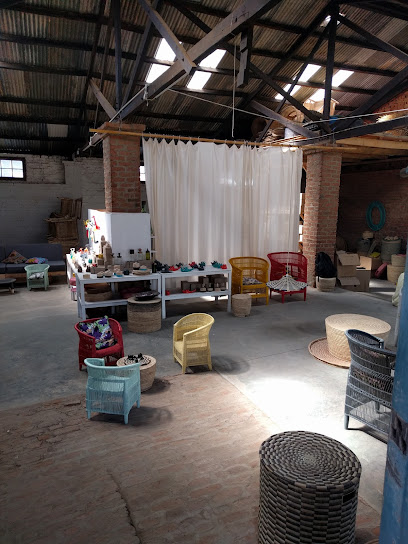
Soche East Shopping Mall
Explore the vibrant Soche East Shopping Mall in Blantyre, Malawi, where shopping, dining, and local culture come together for an unforgettable experience.
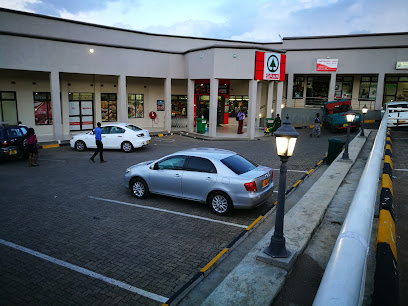
Dhara's Beauty Salon & Boutique
Explore local fashion and indulge in beauty treatments at Dhara's Beauty Salon & Boutique in Blantyre, your stylish getaway.
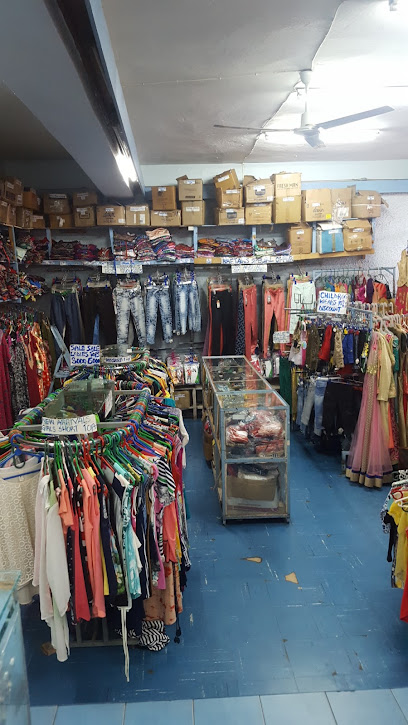
Curtaining Boutique
Explore the Curtaining Boutique in Blantyre, where stylish window treatments meet expert design advice for your perfect home away from home.
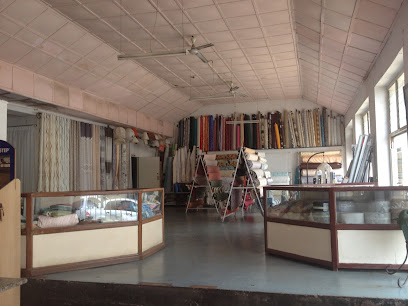
Mall of Africa
Explore the Mall of Africa in Blantyre, Malawi - a vibrant shopping hub featuring local and international brands, dining, and entertainment.
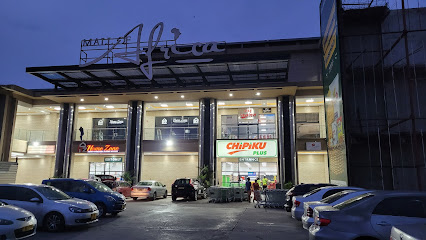
ABC Shop
Experience the vibrant spirit of Malawi at ABC Shop, your go-to destination for unique local crafts and authentic souvenirs in Blantyre.

City Boutique
Discover unique fashion styles at City Boutique in Blantyre, where contemporary meets traditional in a vibrant shopping experience.
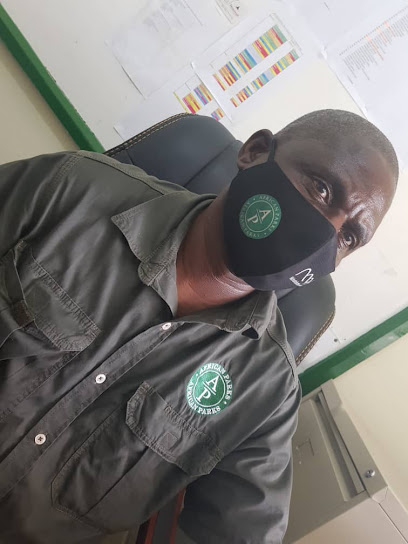
Lakini's Gift Shop
Explore the heart of Malawi's craftsmanship at Lakini's Gift Shop, where every purchase tells a story of culture and artistry.
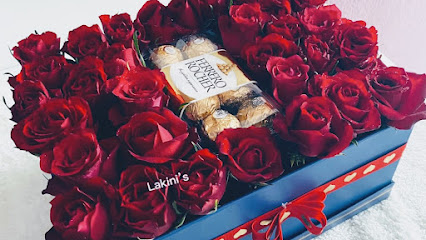
Mfumukazi Shop
Explore Mfumukazi Shop in Blantyre for a unique boutique experience filled with authentic Malawian craftsmanship and vibrant cultural treasures.
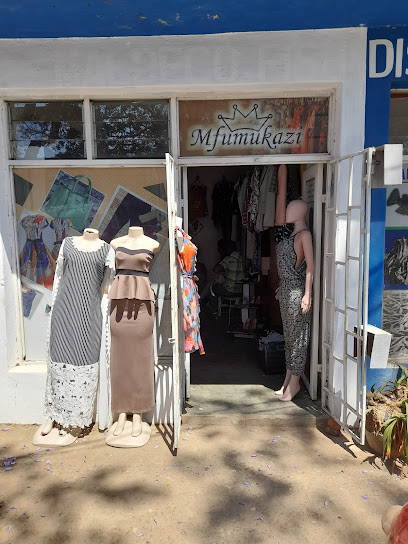
WE ARE ONE EXCLUSIVE
Explore We Are One Exclusive in Blantyre for unique boutique shopping that showcases local craftsmanship and culture.
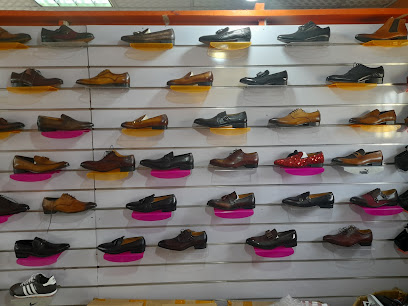
Atelier Alinafe
Explore Atelier Alinafe in Blantyre for unique handmade clothing and accessories that celebrate Malawian culture and craftsmanship.
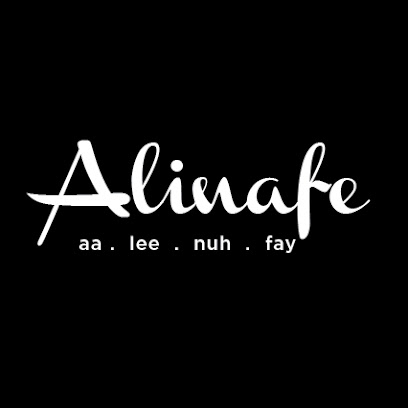
Essential bars & hidden hideouts
The Blue Elephant
Discover the vibrant nightlife of Blantyre at The Blue Elephant, where great drinks and good vibes await every night.
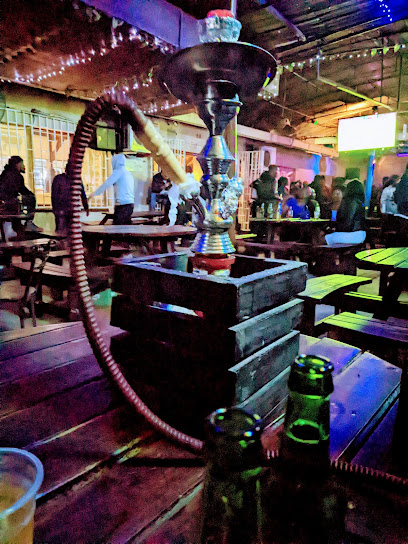
Red Pub & Grub
Experience the vibrant atmosphere and local flavors at Red Pub & Grub, Blantyre's favorite spot for drinks and dining.
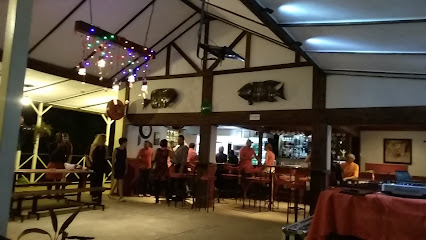
TJ's Bar
Immerse yourself in the lively spirit of Blantyre at TJ's Bar, where fun and affordable drinks await every visitor.
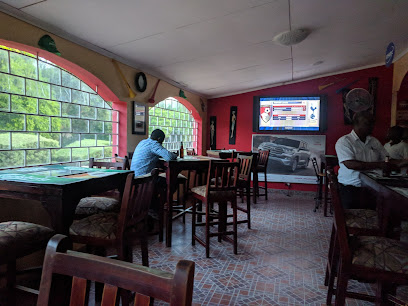
Sky Lounge Bar
Experience breathtaking views and exquisite grilled dishes at Sky Lounge Bar, the ultimate dining destination in Blantyre.
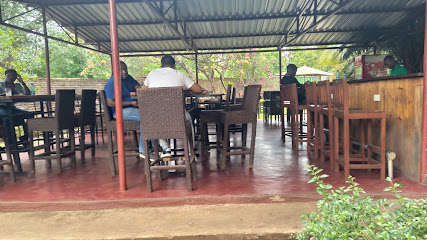
Pablo's Bar
Experience the vibrant nightlife at Pablo's Bar in Blantyre, where great drinks meet a lively atmosphere for an unforgettable evening.
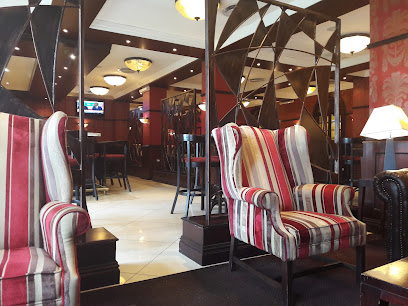
Scallas Cafe And Lounge
Experience the vibrant atmosphere of Scallas Cafe And Lounge in Blantyre, where great drinks and local culture blend seamlessly.
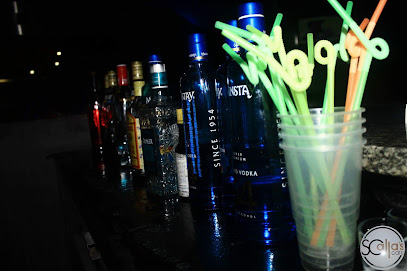
Liwa wine and whiskey bar
Experience the best of Blantyre nightlife at Liwa Wine and Whiskey Bar, where great drinks and a vibrant atmosphere await you.
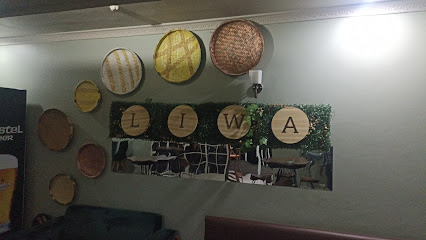
Puchies Bar & Grill
Discover the vibrant atmosphere and local flavors at Puchies Bar & Grill in Blantyre, a perfect spot for dining and nightlife.
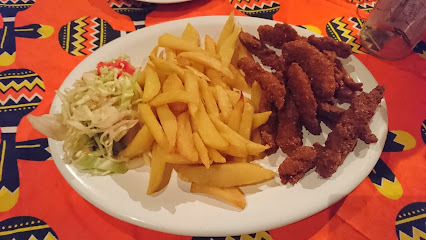
Kaya Lounge
Discover Kaya Lounge, the vibrant bar in Blantyre, offering a perfect blend of refreshing drinks and a lively atmosphere for an unforgettable night out.

Sportsman's Bar
Discover the heart of Blantyre's nightlife at Sportsman's Bar, where locals and tourists mingle over drinks in a lively atmosphere.
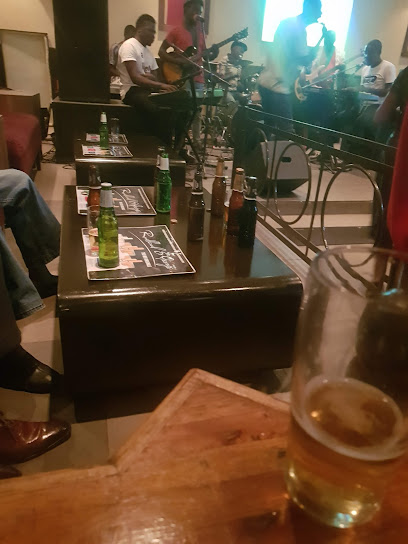
Elixer Wine & Whiskey Bar
Discover a sophisticated drinking experience at Elixer Wine & Whiskey Bar in Blantyre, featuring an exquisite selection of wines and whiskeys in a cozy atmosphere.
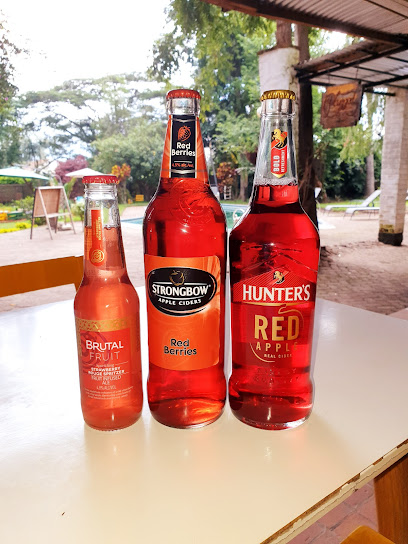
Royalty bar
Discover the vibrant nightlife of Blantyre at Royalty Bar, where locals and tourists mingle over refreshing drinks and lively conversation.

Anchors Lounge
Discover the flavors of Malawi at Anchors Lounge, the ultimate grill destination in Blantyre, offering a vibrant atmosphere and delicious menu.
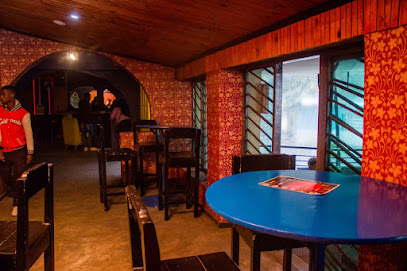
Offside Sports Bar
Experience the thrill of sports and local camaraderie at Offside Sports Bar in Blantyre, a vibrant destination for every sports fan.
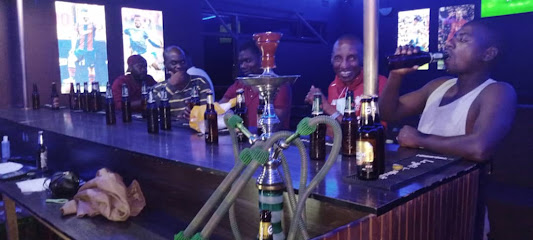
19D Bar
Discover the vibrant nightlife of Blantyre at 19D Bar, where local culture meets a lively atmosphere, perfect for unwinding with friends.

Local Phrases
-
- HelloMoni
[moh-nee] - GoodbyeTionana
[tee-oh-nah-nah] - YesEya
[eh-yah] - NoAyine
[ah-yee-neh] - Please/You're welcomeChonde
[chon-deh] - Thank youZikomo
[zee-koh-moh] - Excuse me/SorryPepani
[peh-pah-nee] - How are you?Muli bwanji?
[moo-lee bwan-jee] - Fine. And you?Ndili bwino. Inu?
[n-dee-lee bwee-noh. ee-noo] - Do you speak English?Mukufuna kutchula chizungu?
[moo-koo-foo-nah koo-choo-lah chee-zoo-ngoo] - I don't understandSindikudziwa
[sin-dee-koo-dzee-wah]
- HelloMoni
-
- I'd like to see the menu, pleaseNdikufuna kuona menyu, chonde
[n-dee-koo-foo-nah kwoh-nah men-yoo, chon-deh] - I don't eat meatSindidya nyama
[sin-dee-dyah nyah-mah] - Cheers!Mangwiro!
[mang-wee-roh] - I would like to pay, pleaseNdikufuna kulipira, chonde
[n-dee-koo-foo-nah koo-lee-pee-rah, chon-deh]
- I'd like to see the menu, pleaseNdikufuna kuona menyu, chonde
-
- Help!Chitani pamtima!
[chee-tah-nee pahm-tee-mah] - Go away!Pita!
[pee-tah] - Call the Police!Pemphani polisi!
[pehm-pah-nee poh-lee-see] - Call a doctor!Pemphani dokotala!
[pehm-pah-nee doh-koh-tah-lah] - I'm lostNdimadutsana
[n-dee-mah-doo-tsah-nah] - I'm illNdimakhala oipa
[n-dee-mah-kah-lah oh-ee-pah]
- Help!Chitani pamtima!
-
- I'd like to buy...Ndikufuna kugula...
[n-dee-koo-foo-nah koo-goo-lah] - I'm just lookingNdikukhala ndikungoona
[n-dee-koo-kah-lah n-dee-koo-ngoo-nah] - How much is it?Yambani?
[yahm-bah-nee] - That's too expensiveIzi ndi zambiri
[ee-zee n-dee zahm-bee-ree] - Can you lower the price?Mukhoza kusintha tsambalo?
[moo-koh-zah koo-seen-thah tsahm-bah-loh]
- I'd like to buy...Ndikufuna kugula...
-
- What time is it?Sitha zaka ndi zino?
[see-tah zah-kah n-dee zee-noh] - It's one o'clockSakudala makumi awiri
[sah-koo-dah-lah mah-koo-mee ah-wee-ree] - Half past (10)Chidzamulabwino
[chee-dzah-moo-lah-bwee-noh] - MorningUsiku
[oo-see-koo] - AfternoonMadzulo
[mah-dzoo-loh] - EveningMawa
[mah-wah] - YesterdayNakudza
[nah-koo-dzah] - TodayLero
[leh-roh] - TomorrowMawa
[mah-wah] - 1Kale
[kah-leh] - 2Ziwiri
[zee-wee-ree] - 3Zitatu
[zee-tah-too] - 4Zinai
[zee-nah-ee] - 5Ziwiri
[zee-nee] - 6Zisano
[zee-sah-noh] - 7Zisanu
[zee-sah-noo] - 8Ziwome
[zee-wom-eh] - 9Zilonda
[zee-lohn-dah] - 10Kumi
[koo-mee]
- What time is it?Sitha zaka ndi zino?
-
- Where's a/the...?Kuli...?
[koo-lee] - What's the address?Adzindikireni adilesi?
[ah-dzee-nee-kee-reh-nee ah-dee-leh-see] - Can you show me (on the map)?Mukhoza kundikonzera (pamapu)?
[moo-koh-zah koon-dee-kohn-zeh-rah pah-mah-poo] - When's the next (bus)?Pamene patali patsogolo?
[pah-meh-neh pah-tah-lee pah-tsoh-goh-loh] - A ticket (to ....)Tiketi (kutali ku....)
[tee-keh-tee koo-tah-lee koo]
- Where's a/the...?Kuli...?
History of Blantyre
-
Blantyre, named after the Scottish town where explorer David Livingstone was born, was established in 1876 by the Church of Scotland Mission. It is one of the oldest urban centers in Malawi and played a crucial role in the spread of Christianity and Western education in the region.
-
In the late 19th century, European settlers began to establish plantations around Blantyre, capitalizing on the fertile land for crops such as coffee and tea. The influx of settlers brought significant changes to the local economy and social structure.
-
In 1891, the British established the Nyasaland Protectorate, and Blantyre became an essential administrative and commercial hub. The colonial period saw the construction of key infrastructure, including roads, railways, and public buildings, many of which still stand today.
-
Malawi gained independence from British rule in 1964, and Blantyre continued to grow as a commercial and industrial center. The post-colonial period saw increased urbanization and the development of modern amenities, making the city a bustling hub of activity.
-
Blantyre is known for its cultural diversity, with a blend of indigenous Malawian traditions and influences from European settlers and Asian communities. This rich cultural tapestry is evident in the city's vibrant markets, festivals, and culinary scene.
-
Blantyre is home to several historical landmarks, including St. Michael and All Angels Church, built in 1888 by Scottish missionaries, and Mandala House, the oldest building in Malawi, now housing an art gallery and café. These sites offer a glimpse into the city's storied past.
-
Today, Blantyre remains a vital economic center in Malawi, hosting numerous industries, banks, and corporations. The city's economy is bolstered by its strategic location and well-developed infrastructure, making it a key player in the nation's economic landscape.
Blantyre Essentials
-
Blantyre is accessible via Chileka International Airport (BLZ), located about 16 kilometers from the city center. The airport has regular flights from major African cities such as Johannesburg, Addis Ababa, and Nairobi. From the airport, you can take a taxi or arrange for a shuttle service to your accommodation. Alternatively, if you are traveling from within Malawi, you can reach Blantyre by bus or car from other major cities like Lilongwe and Zomba.
-
In Blantyre, local transportation options include taxis, minibuses, and bicycles. Taxis are widely available and can be hailed on the street or booked through your hotel. Minibuses are the most common form of public transport, though they can be crowded and may not adhere to strict schedules. For a more local experience, consider renting a bicycle to explore the city. Car rentals are also available for those who prefer to drive themselves.
-
The official currency of Malawi is the Malawian Kwacha (MWK). Credit cards are accepted in major hotels, restaurants, and shops, but it is advisable to carry cash for smaller establishments and local markets. ATMs are available in Blantyre, but ensure you withdraw enough cash as some areas may not have reliable ATM services. It's also wise to inform your bank of your travel plans to avoid any issues with card transactions.
-
Blantyre is generally a safe city for tourists, but like any urban area, it is important to stay vigilant. Avoid walking alone at night and be cautious in crowded areas to prevent pickpocketing. Areas such as Ndirande and some parts of Chilomoni are known for higher crime rates and should be avoided, especially after dark. Always keep your belongings secure and be cautious when using ATMs.
-
In case of emergency, dial 997 for the police, 998 for an ambulance, and 999 for the fire department. Blantyre has several hospitals, including the Queen Elizabeth Central Hospital, which provides emergency medical services. It is highly recommended to have travel insurance that covers medical emergencies. For minor health issues, there are numerous pharmacies where you can purchase over-the-counter medications.
-
Fashion: Do dress modestly, especially when visiting religious sites or rural areas. Avoid wearing overly revealing clothing. Religion: Do respect local customs and traditions. It's polite to remove your shoes when entering someone's home or a religious site. Public Transport: Do be patient and polite when using minibuses. Don't expect strict adherence to schedules. Greetings: Do greet people with a handshake and a smile. It's polite to ask about someone's health or family. Eating & Drinking: Do try local dishes such as nsima and chambo. Don't refuse food or drink offered by locals, as it is considered impolite.
-
To experience Blantyre like a local, visit the local markets such as Limbe Market and Blantyre Market, where you can buy fresh produce and local crafts. Engage with locals, who are often friendly and willing to share stories about their city. Don’t miss out on visiting the Mandala House, the oldest building in Malawi, and taking a stroll through the beautiful Michiru Mountain Conservation Area. For a unique dining experience, try the local street food vendors.
Trending Landmark in Blantyre
Nearby Cities to Blantyre
-
Things To Do in Zomba
-
Things To Do in Mangochi
-
Things To Do in Salima
-
Things To Do in Lilongwe
-
Things To Do in Chipata
-
Things To Do in Nyanga
-
Things To Do in Mutare
-
Things To Do in Nkhata Bay
-
Things To Do in Harare
-
Things To Do in Mzuzu
-
Things To Do in Chinhoyi
-
Things To Do in Masvingo
-
Things To Do in Karonga
-
Things To Do in Kariba
-
Things To Do in Gweru










